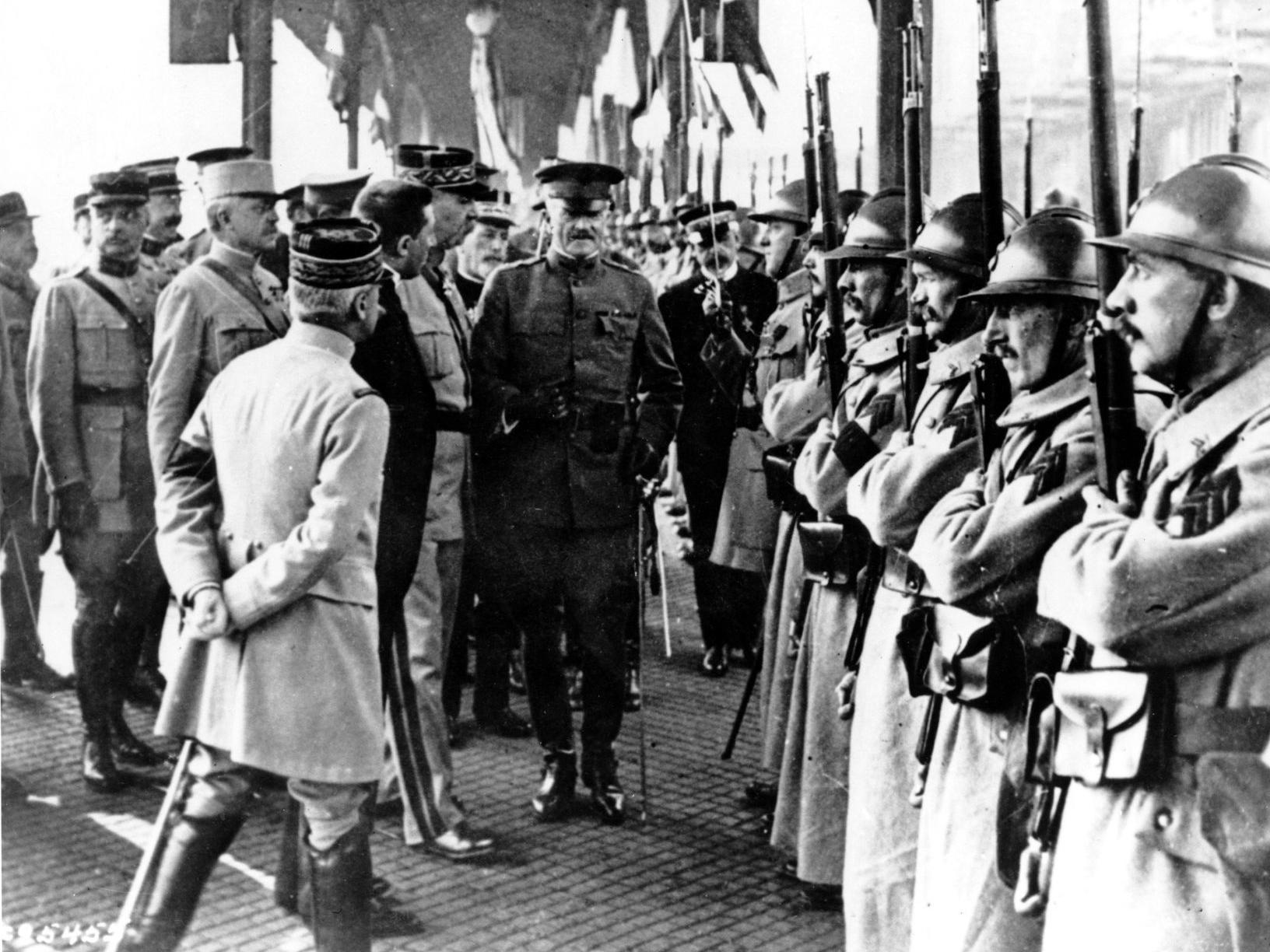John Joseph 'Black Jack' Pershing (September 13, 1860 – July 15, 1948) Article in the New Orleans Item, April 30, 1918 The ordinance took effect in May, but by June there were already complaints that the “Berlin” letters “embedded in the sidewalks” were not being “effaced” fast enough. Article in the New Orleans States, June 12, 1918. About.com Urban Legends, 'Black Jack Pershing vs. Muslim Terrorists,' updated Feb. 19, 2015 Donald Smythe, ' Pershing and the Disarmament of the Moros ' ( Pacific Historical Review ), Aug.
Who is John J. Pershing?

John J. Pershing, in full John Joseph Pershing was born 13 September 1860 in Laclede, Missouri, U.S. and died 15 July 1948, Washington, D.C. U.S. Pershing was an army general who commanded the American Expeditionary Force (AEF) in Europe during World War I.
1886. The beginning
Pershing graduated from the United States Military Academy at West Point, New York, in 1886. After serving several campaigns and being wounded in battle, he was appointed as an instructor in tactics at West Point in 1897.
1898.
The Spanish-American War gave Pershing opportunity for rapid promotion. He served in Cuba through the Santiago campaign (1898) and was appointed major of volunteers. In June 1899 he was made adjutant general. He established the Bureau of Insular Affairs in the War Department and acted as head of that bureau.

1906 and Roosvelt promotion
In 1899, Pershing was dispatched to the Philippines as adjutant general of the department of Mindanao. In 1905, he was military attaché to the U.S. embassy in Japan. In 1906, U.S. President Theodore Roosevelt promoted Pershing. He next gained attention as commander of the punitive expedition sent against the Mexican revolutionary Pancho Villa, who had raided Columbus, New Mexico, in 1916.
1917
In April 1917, President Woodrow Wilson selected Pershing to command the American troops being sent to Europe – he landed in France on 9 June 1917 – to fight in WWI. The transition from the anti-insurgency campaigns that had characterized much of Pershing’s career to the vast stagnant siege of the Western Front was an extreme test, but Pershing brought to the challenge a keen administrative sense and a knack for carrying out plans in spite of adversity.
Pershing returned home with a sound reputation, and, on 1 September 1919, he was given the rank of general of the armies of the United States. Pershing’s nickname, “Black Jack,” derived from his service with a black regiment early in his career. Eschewing politics, Pershing remained in the army, serving as chief of staff from 1921 until his retirement in 1924.
John J. Pershing interesting facts, biography, family, updates, life, childhood facts, information and more:
What is John J. Pershing's middle name?
J.

How old was John J. Pershing when died?
87
When did John J. Pershing die?
July 15, 1948
What is John J. Pershing's occupation?
General John Joseph Black Jack Pershing Chicago Il
Military man

Short Biography
General John Joseph Black Jack Pershing Jr
John Joseph 'Black Jack' Pershing (September 13, 1860 – July 15, 1948) was the general in the United States Army who led the American Expeditionary Forces to victory over Germany in World War I, 1917–18. He rejected British and French demands that American forces be integrated with their armies, and insisted that the AEF would operate as a single unit under his command, although some American divisions fought under British command, and he also allowed all-black units to be integrated with the French army. US forces first saw serious battle at Cantigny, Chateau-Thierry, Belleau Wood, and Soissons. To speed up the arrival of the doughboys, they embarked for France leaving the heavy equipment behind, and used British and French tanks, artillery, airplanes and other munitions. In September 1918 at St. Mihiel, the First Army was directly under Pershing's command; it overwhelmed the salient which the German Army had held for three years. Pershing shifted 600, 000 American soldiers to the heavily defended forests of the Argonne, keeping his divisions engaged in hard fighting for 47 days, alongside the French. That victory was one of several factors causing the Germans to call for an armistice, although Pershing himself wanted to continue the war, occupy all of Germany, and permanently destroy German militarism.